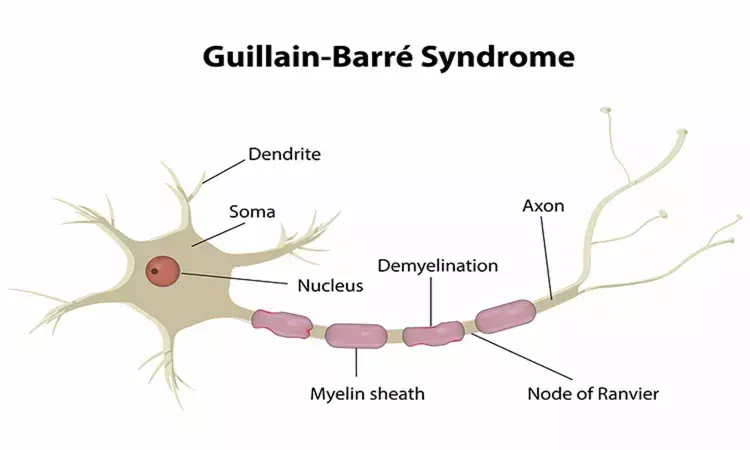- Home
- Medical news & Guidelines
- Anesthesiology
- Cardiology and CTVS
- Critical Care
- Dentistry
- Dermatology
- Diabetes and Endocrinology
- ENT
- Gastroenterology
- Medicine
- Nephrology
- Neurology
- Obstretics-Gynaecology
- Oncology
- Ophthalmology
- Orthopaedics
- Pediatrics-Neonatology
- Psychiatry
- Pulmonology
- Radiology
- Surgery
- Urology
- Laboratory Medicine
- Diet
- Nursing
- Paramedical
- Physiotherapy
- Health news
- Fact Check
- Bone Health Fact Check
- Brain Health Fact Check
- Cancer Related Fact Check
- Child Care Fact Check
- Dental and oral health fact check
- Diabetes and metabolic health fact check
- Diet and Nutrition Fact Check
- Eye and ENT Care Fact Check
- Fitness fact check
- Gut health fact check
- Heart health fact check
- Kidney health fact check
- Medical education fact check
- Men's health fact check
- Respiratory fact check
- Skin and hair care fact check
- Vaccine and Immunization fact check
- Women's health fact check
- AYUSH
- State News
- Andaman and Nicobar Islands
- Andhra Pradesh
- Arunachal Pradesh
- Assam
- Bihar
- Chandigarh
- Chattisgarh
- Dadra and Nagar Haveli
- Daman and Diu
- Delhi
- Goa
- Gujarat
- Haryana
- Himachal Pradesh
- Jammu & Kashmir
- Jharkhand
- Karnataka
- Kerala
- Ladakh
- Lakshadweep
- Madhya Pradesh
- Maharashtra
- Manipur
- Meghalaya
- Mizoram
- Nagaland
- Odisha
- Puducherry
- Punjab
- Rajasthan
- Sikkim
- Tamil Nadu
- Telangana
- Tripura
- Uttar Pradesh
- Uttrakhand
- West Bengal
- Medical Education
- Industry
Elevated sugar in blood and CSF increases severity of Guillain-Barre syndrome: Study

China: Increased levels of sugar in the blood and cerebrospinal fluid are associated with severity and short-term prognosis of Guillain-Barre syndrome (GBS), show results from a recent study. The study findings are published in the journal Neurological Research.
Guillain-Barré syndrome is a rare condition in which the body's immune system attacks the nerves. Findings from previous preliminary studies have suggested a potential association between blood sugar levels and GBS.
Against the above background, Zuneng Lu, Renmin Hospital Of Wuhan University, Wuhan, Hubei Province, P.R.C. China, and colleagues aimed to explore the correlation of elevated glucose levels in the blood and cerebrospinal fluid with the progression and short-term prognosis of GBS.
For this purpose, the researchers collected and retrospectively reviewed the medical records of 982 patients diagnosed with GBS in 31 representative tertiary hospitals, located in 14 provinces in southern China. Patients were grouped according to the levels of cerebrospinal fluid (CSF) glucose and fasting plasma glucose (FPG), as well as the concentration of blood hemoglobinAlc (HbA1c). Functional outcomes were quantified using the Hughes grade scale.
Based on the study, the researchers found the following
- Compared to patients with normal FPG and CSF glucose levels, those in the high FPG and high CSF glucose groups were characterized by a higher proportion of severe patients (HFGS ≥ 3) at admission (58.8 vs. 73.1), at nadir (67.4 vs. 83.0), and at discharge (29.8 vs. 46.3).
- Patients in the high HbA1c group also had a more severe disability at admission (74.6 vs. 56.1) and at nadir (80.3 vs. 64.3) compared to the normal HbA1c group.
- Elevated levels of FPG and CSF glucose were significantly correlated with more severe disability at admission, at nadir, and at discharge.
Our study findings showed that elevated glucose levels in the blood and cerebrospinal fluid were associated with the severity and short-term prognosis of GBS, concluded the authors.
Reference:
The study titled, "Elevated blood and cerebrospinal fluid glucose levels affect the severity and short-term prognosis of Guillain-Barré syndrome," is published in the journal Neurological Research.
DOI: https://www.tandfonline.com/doi/full/10.1080/01616412.2021.1965337
Dr Kamal Kant Kohli-MBBS, DTCD- a chest specialist with more than 30 years of practice and a flair for writing clinical articles, Dr Kamal Kant Kohli joined Medical Dialogues as a Chief Editor of Medical News. Besides writing articles, as an editor, he proofreads and verifies all the medical content published on Medical Dialogues including those coming from journals, studies,medical conferences,guidelines etc. Email: drkohli@medicaldialogues.in. Contact no. 011-43720751


